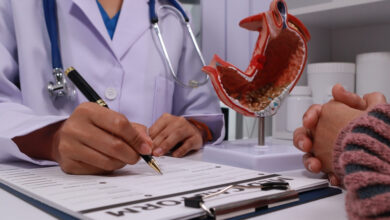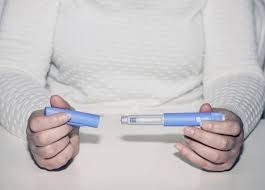How Does Abortion Affect Mental Health?
Abortion is a deeply personal and often complex decision that many women face at some point in their lives. The decision to terminate a pregnancy can be influenced by various factors, including personal circumstances, health concerns, and social pressures. One aspect that is often discussed in relation to abortion is its impact on mental health. This article aims to explore how abortion affects mental health, providing a comprehensive and balanced view of the subject.
Understanding Abortion
Abortion is the medical process of ending a pregnancy so that it does not result in the birth of a baby. There are various methods of abortion, including medical abortion, which involves taking medication to terminate the pregnancy, and surgical abortion, which involves a minor operation. The choice of method depends on how far along the pregnancy is and other individual health considerations.
Medical abortions can be performed using medication, such as the MTP kit. The MTP kit contains two drugs: mifepristone and misoprostol. Mifepristone blocks the hormone progesterone, which is necessary for the pregnancy to continue, while misoprostol induces contractions to expel the pregnancy tissue from the uterus. This method is often preferred for early pregnancies as it is less invasive than surgical options.
The Emotional Journey of Abortion
The decision to have an abortion can evoke a wide range of emotions. Some women may feel relief, especially if the pregnancy was unintended or posed a threat to their health. Others may experience feelings of sadness, guilt, or anxiety. It is important to acknowledge that these emotions are normal and can vary greatly from person to person.
Relief and Empowerment
For many women, the primary emotion following an abortion is relief. This relief can stem from various sources, such as the avoidance of an unwanted pregnancy, the ability to continue with personal goals and plans, or the relief from health complications associated with the pregnancy. This sense of relief can contribute positively to a woman’s mental health, providing her with a renewed sense of control over her life and body.
Grief and sadness
On the other hand, some women may experience grief and sadness after an abortion. These feelings can be more pronounced in cases where the decision was particularly difficult, such as when the pregnancy was wanted but terminated for medical reasons. The grieving process is a natural response to loss and can vary in duration and intensity.
Guilt and shame
Feelings of guilt and shame can also arise after an abortion, often influenced by cultural, religious, or societal norms that stigmatize abortion. These emotions can be challenging to navigate and may contribute to mental health struggles if not properly addressed.
Anxiety and depression
In some cases, women may experience anxiety or depression following an abortion. These conditions can be influenced by pre-existing mental health issues, the circumstances surrounding the abortion, and the level of support available to the woman. It is crucial to seek professional help if feelings of anxiety or depression become overwhelming or persistent.
Factors Influencing Mental Health After Abortion
The impact of abortion on mental health is not uniform and can be influenced by a variety of factors. Understanding these factors can help in providing appropriate support and care to women undergoing this experience.
Pre-existing mental health conditions
Women with a history of mental health issues may be more vulnerable to experiencing emotional difficulties after an abortion. Conditions such as depression, anxiety, and trauma can be exacerbated by the stress and emotional upheaval of the abortion process.
Support Systems
The availability and quality of support systems play a significant role in how a woman copes with an abortion. Having supportive friends, family, and healthcare providers can provide the emotional and practical assistance needed during this time. Conversely, a lack of support or the presence of judgmental attitudes can contribute to negative mental health outcomes.
Personal beliefs and values
A woman’s personal beliefs and values can greatly influence her emotional response to abortion. Those who hold strong religious or moral convictions against abortion may experience more intense feelings of guilt and shame. On the other hand, women who view abortion as a necessary and acceptable option may feel more at peace with their decision.
Reasons for the Abortion
The reasons behind the decision to have an abortion can also impact mental health outcomes. Women who terminate pregnancies due to health risks, fetal abnormalities, or cases of rape or incest may have different emotional responses compared to those who do so for socio-economic reasons. The complexity of the circumstances can influence the intensity and nature of the emotions experienced.
Long-Term Mental Health Effects
Research on the long-term mental health effects of abortion is mixed and often influenced by methodological differences and biases. However, several studies provide insights into the potential long-term impacts.
No Increased Risk of Mental Health Disorders
Many studies indicate that abortion does not increase the risk of mental health disorders. The American Psychological Association (APA) has found that the risk of mental health problems is no greater for women who have an abortion than for those who carry an unplanned pregnancy to term. Factors such as pre-existing mental health conditions and the level of social support are more significant predictors of mental health outcomes than abortion itself.
Post-Traumatic Stress Disorder (PTSD)
Some women may develop symptoms of PTSD following an abortion, particularly if the experience was traumatic or if they felt coerced into the decision. Symptoms of PTSD can include flashbacks, nightmares, and severe anxiety. It is important to seek professional help if these symptoms occur.
Positive mental health outcomes
On the other hand, some women report positive mental health outcomes after an abortion. These can include a sense of empowerment, increased self-esteem, and improved mental clarity. The ability to make a choice that aligns with one’s personal circumstances and values can contribute positively to mental well-being.
The Role of Healthcare Providers
Healthcare providers, including those at Active Life Pharmacy, play a crucial role in supporting women through the abortion process. Providing accurate information, compassionate care, and appropriate referrals to mental health services can make a significant difference in a woman’s experience.
Providing comprehensive information
Healthcare providers should offer comprehensive information about the different methods of abortion, including the use of MTP kits, and what to expect during and after the procedure. Understanding the process can help alleviate fears and anxieties.
Emotional Support
Providing emotional support is equally important. Healthcare providers should create a non-judgmental and empathetic environment where women feel comfortable discussing their feelings and concerns. This support can be crucial in helping women process their emotions and navigate any challenges they may face.
Referrals to mental health services
In cases where women experience significant emotional distress, healthcare providers should refer them to appropriate mental health services. Professional counseling or therapy can provide the necessary support and coping strategies to manage feelings of anxiety, depression, or PTSD.
The importance of self-care
Self-care is an essential aspect of maintaining mental health after an abortion. Engaging in activities that promote physical, emotional, and mental well-being can help women recover and build resilience.
Physical Self-Care
Physical self-care involves activities that improve physical health and well-being. This can include regular exercise, a balanced diet, and adequate sleep. Taking care of one’s physical health can positively impact mental health by reducing stress and improving mood.
Emotional Self-Care
Emotional self-care involves activities that help manage and express emotions. This can include journaling, talking to a trusted friend or family member, or engaging in creative activities such as art or music. It is important to acknowledge and validate one’s feelings without judgment.
Mental Self-Care
Mental self-care involves activities that stimulate and relax the mind. This can include reading, engaging in hobbies, practicing mindfulness or meditation, and setting realistic goals. Taking time for mental self-care can help reduce anxiety and improve overall mental health.
The Role of Support Groups
Support groups can provide a valuable space for women to share their experiences and receive support from others who have gone through similar situations. These groups can be facilitated by professionals or peer-led and can be in-person or online.
Benefits of Support Groups
Support groups offer several benefits, including the opportunity to connect with others, share feelings and experiences, receive emotional support, and gain insights and coping strategies from others. Being part of a supportive community can reduce feelings of isolation and provide a sense of belonging.
Finding support groups
Women can find support groups through healthcare providers, community organizations, and online platforms. It is important to choose a group that feels safe and supportive, where participants respect each other’s experiences and perspectives.
The Role of Active Life Pharmacy
Active Life Pharmacy is committed to providing comprehensive care and support to women considering or undergoing an abortion. Our goal is to ensure that women have access to the necessary medical resources, including the MTP kit, and receive compassionate care throughout the process.
Access to Medication
At Active Life Pharmacy, we offer the MTP kit, which is a safe and effective option for medical abortion. Our pharmacists are available to provide information on how to use the kit and what to expect during the process. We ensure that our clients have access to high-quality medication and understand how to use it safely.
Supportive Care
We believe in providing holistic care that addresses both physical and emotional needs. Our team is trained to offer non-judgmental and empathetic support to women facing the decision to have an abortion. We understand the importance of a compassionate approach and strive to create a supportive environment for all of our clients.
Referral Services
Recognizing that some women may need additional support, we offer referrals to mental health services and support groups. Whether it’s professional counseling or peer support, we can help connect women with the resources they need to navigate their emotions and experiences.
Conclusion
The decision to have an abortion is a personal and often complex one, with potential implications for mental health. Women may experience a range of emotions, including relief, sadness, guilt, and anxiety. The impact on mental health can be influenced by various factors, including pre-existing mental health conditions, the availability of support, personal beliefs, and the reasons for the abortion.
It is important to provide women with comprehensive information, compassionate care, and access to support services. Healthcare providers, including those at Active Life Pharmacy, play a crucial role in supporting women through this experience. By offering safe medication options like the MTP kit, which you can buy MTP kit at Active Life Pharmacy, providing emotional support, and facilitating referrals to mental health services, we can help women navigate the emotional journey of abortion with care and understanding.
Ultimately, the key to positive mental health outcomes lies in a supportive environment where women feel empowered to make informed decisions about their bodies and futures. Through compassionate care and comprehensive support, we can help women achieve mental well-being and resilience after an abortion.



